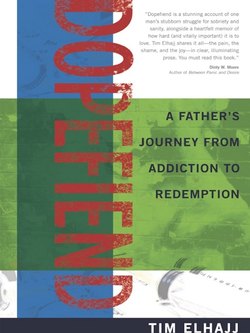Читать книгу Dopefiend - Tim Elhajj - Страница 13
На сайте Литреса книга снята с продажи.
ОглавлениеCHAPTER 1
HONESTY
After getting booted from high school three times, I joined the military. Three years into my enlistment, the Navy cut me loose. I moved back to Pennsylvania and got married, but soon after our first child was born, my wife split, taking our baby boy with her.
I was a twenty-four-year-old cyclone of poor decisions.
In time, I landed in county jail. At least nobody gets thrown out of jail. Drug treatment followed, but even that didn’t work: I went to recovery meetings high. One night a woman named Wendy R pulled me aside and hissed: “You are going to die!”
I told her the obvious, “We’re all going to die, Wendy.”
Another court date loomed. I was too soft for more jail. In a bid for leniency from the judge, I decided to enter drug treatment again. Although the rehabs in Pennsylvania refused to take me back, they suggested a facility up in the Bronx.
I assessed my situation. New York City seemed like a long shot, another poor decision, in a lifetime of poor decisions. But it seemed as if it’d be the only shot I’d have.
I took the Greyhound to Times Square, arriving with the chilly December daylight. Steam billowed from grates, cars packed the streets, and long morning shadows fell like knives.
I made my way to a drug bazaar in Alphabet City. My last fix, my last twenty dollars. I walked to 99th and Amsterdam for an intake appointment, and what would be my last stop before the Bronx. Around 3:00 p.m., a social worker named Roberto started my paperwork. He had greasy hair and wore a button down shirt that appeared to have been created from a Puerto Rican flag. He asked when the last time I got high was. I was nervous and thought a joke might lighten the mood.
“What time is it now?” I asked.
“You got high today?” Roberto scowled. Instead of sending me to the Bronx, he told me to go back downtown to a homeless shelter.
“Get outta here,” he said.
I balked. Why had I been truthful with Roberto? I needed treatment, not a homeless shelter. When he saw my distress, something in Roberto’s manner softened, but he stayed firm about the shelter. I had to go.
I rode the train to the East Village. The shelter was on Saint Mark’s Place. About a dozen homeless people wandered about in a damp and cavernous room with soaring black walls, large hand-painted hippie flowers, and purple peace signs.
“What is this place?” I asked.
“The Electric Circus,” said a slight Latino with glassy eyes. “A night club from the 60s. Hendrix played here.” A disco ball hung from the ceiling and fold-out cots were clustered in twos and threes on the dance floor. Looking around, I thought, one thing’s for sure: Jimi don’t play here no more.
Food was scarce. Weekdays, everyone would sit on the front steps to ask passers-by for change. I couldn’t bring myself to beg. One morning, I went to the corner deli and slipped two ice cream sandwiches into my jacket. I could see little tornados of trash and fallen leaves swirling up the street.
“You,” a tousle-headed man from behind the counter said. “Put those back.”
I feigned innocence, but his dark eyes shone fiercely. “The ice cream in your jacket,” he said. “Put it back.”
I did as he asked and headed for the door.
“You hungry?” he asked. Without waiting for an answer, he sailed an ovensoft roll over the counter toward me. His kindness made my face burn with shame.
Weekends at the shelter, they held dances to raise funds. These lasted until 3:00 or 4:00 a.m., and you couldn’t set up your cot until they were over. I just wanted to hide from all the handsome people, so I went to the basement, which everyone called the Dom. I was told the Dom had been Andy Warhol’s, “Exploding Plastic Inevitable,” as if this explained everything. Now the Dom was home to round-the-clock recovery meetings.
At one meeting, the chairperson started reading a passage from the program literature, then abruptly, without missing a word, he got up and headed to the back of the room, where an old homeless man had fallen asleep holding a lit cigar, setting his overcoat ablaze. The chairperson only stopped reading long enough to swat the flames out.
Good God, I thought.
In Pennsylvania, I had boosted a pair of Nikes: hi-top leather, white-onwhite, my favorite kind of sneaker. I considered swapping these to another homeless guy who might have had some dope. As I was trying to decide what to do, the person in charge at the shelter, a beautiful Puerto Rican woman with an ugly scar that ran from the left side of her mouth all the way to her ear (this meant she had snitched), asked everyone to help decorate a pathetic little plastic tree someone had rescued from the trash— our Christmas tree.
There were no ornaments or lights: just newspaper folded into origami and some macaroni noodles threaded with string.
I decided it was beneath me.
Sitting in the corner, I cupped my hands to light a cigarette. I could hear the wind begin to rise and swirl around me. If everything worked out exactly the way I wanted—best case scenario—I would be high for a few hours, and then. . .
I would be barefoot.
In the city.
In December.
I decided I had better start decorating that ugly little tree.
